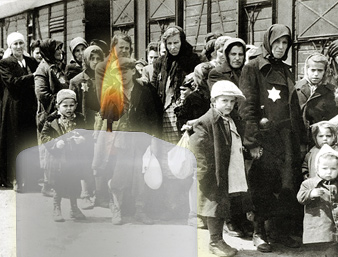
The Mystery of Goodness
Almost three quarters of a century have passed since the earth-shattering events that we know as the Second World War took place. After so much time has transpired, it is probably not surprising to find that various and sundry scholars have begun to take a second – and in some instances, a third and fourth – look at that period and are finding that some of our early or initial conclusions about people and circumstances of that era may not quite be what we thought.
We Americans have long pictured ourselves, for example, as the grand heroes of that epic struggle. Even though America entered WWII over two years after it began, we like to think of America’s entry as the tipping-point in the conflict, with the defeat of Germany hinged to the invasion of Europe in June 1944. But the British historian Norman Davies points out that equally, if not more, critical battles were taking place on the eastern front where the German and Soviet armies collided. And, he notes, while the U.S. lost 143,000 soldiers in the fight against Germany, the Soviet Union lost eleven million.





